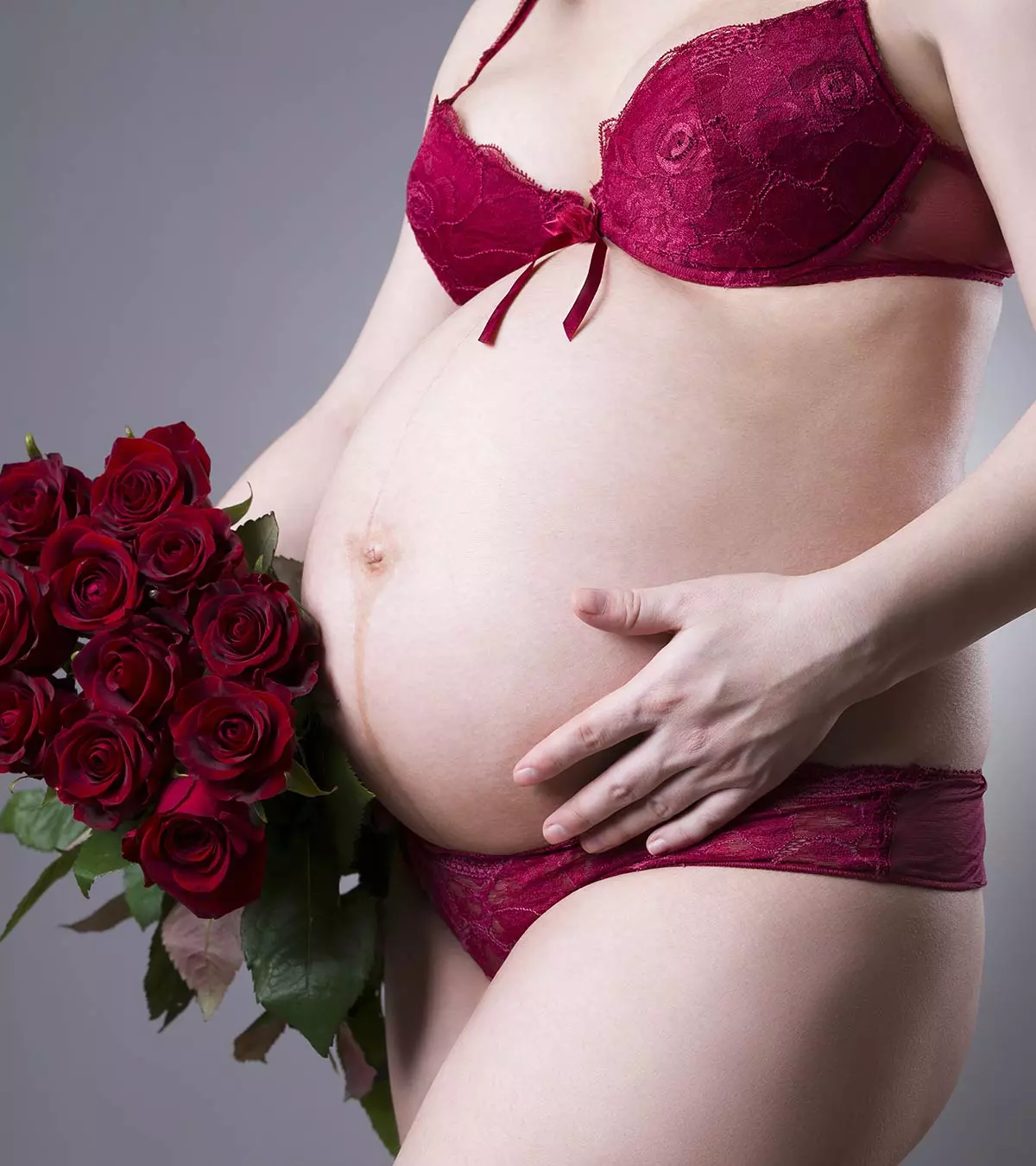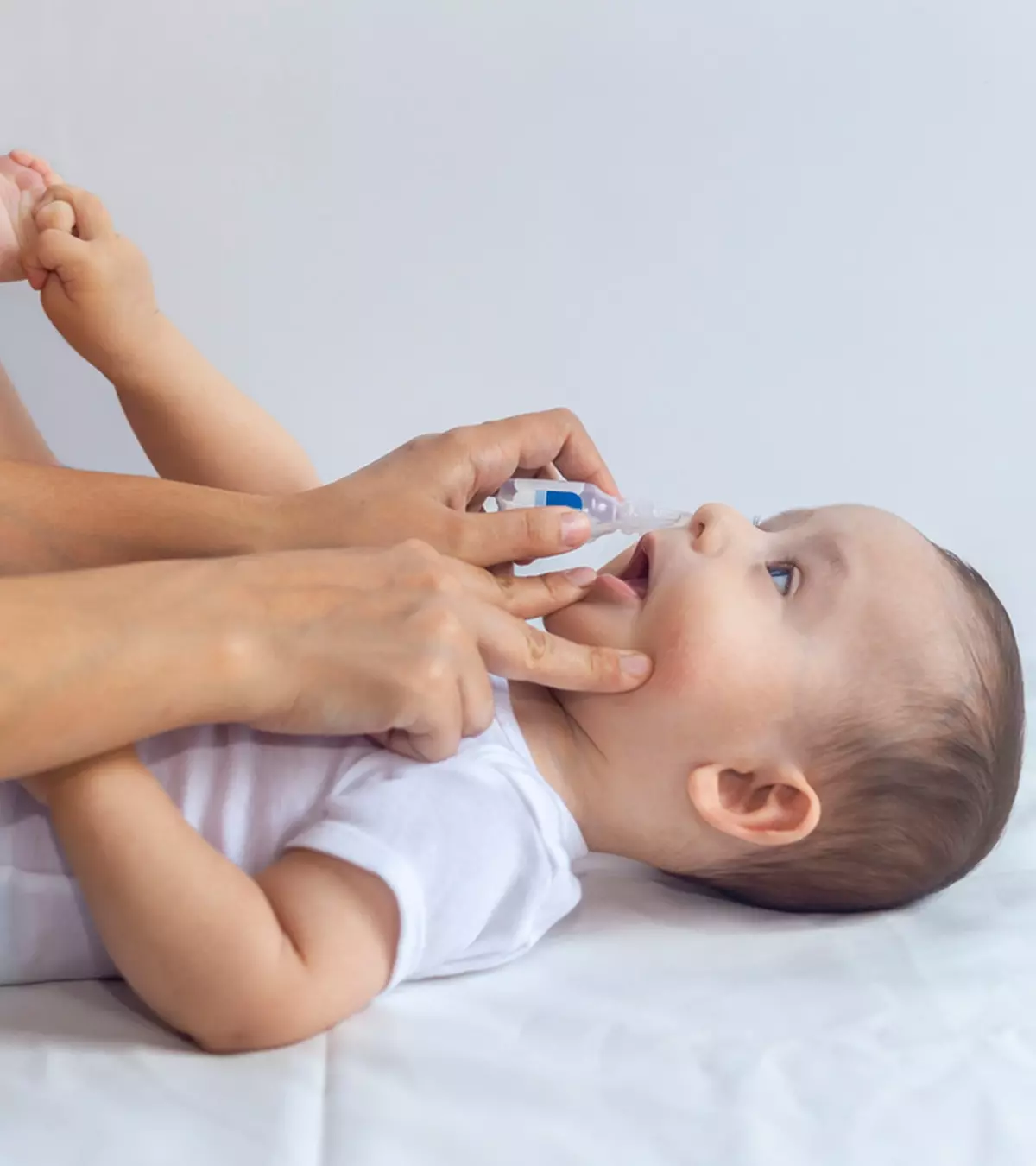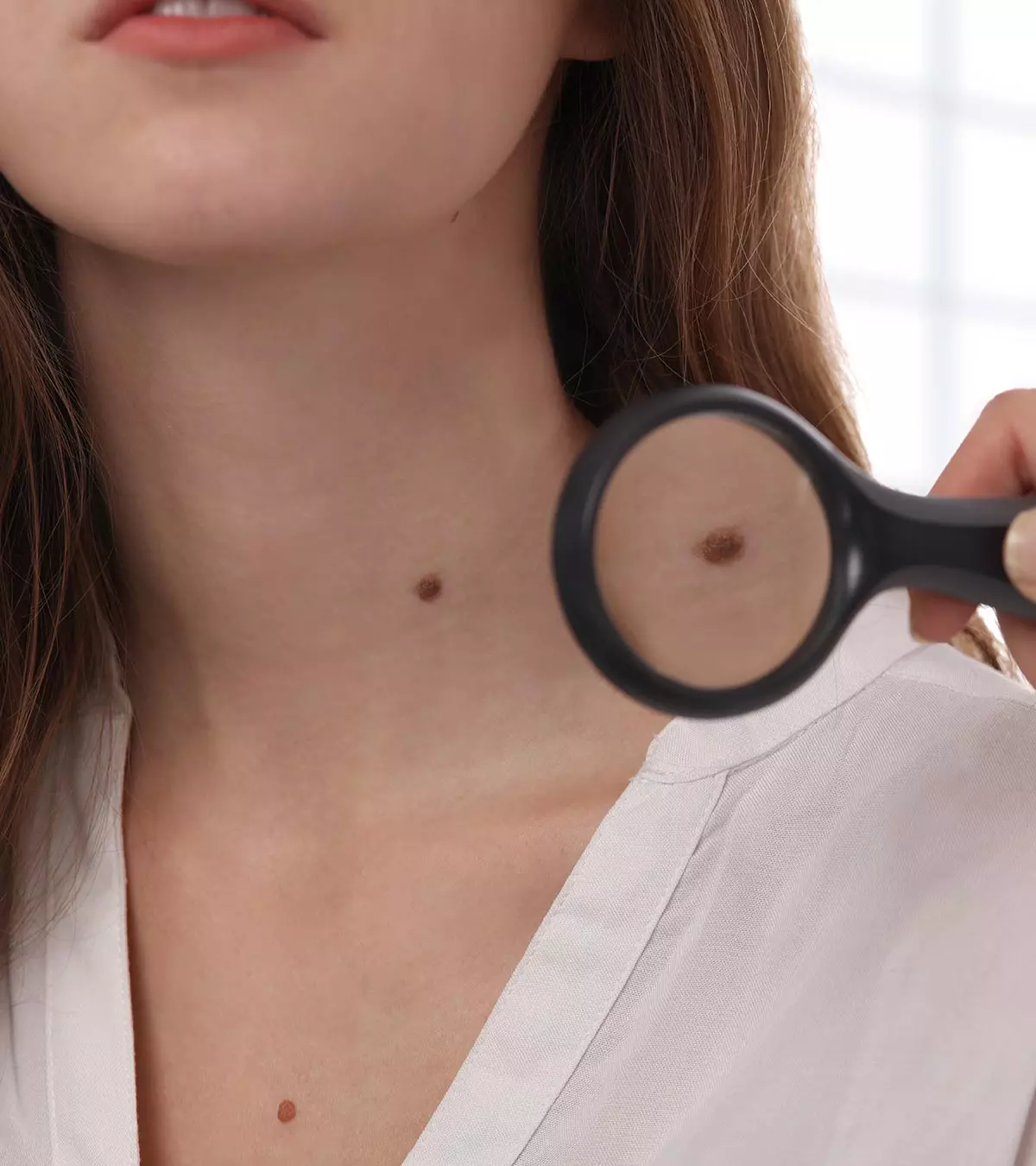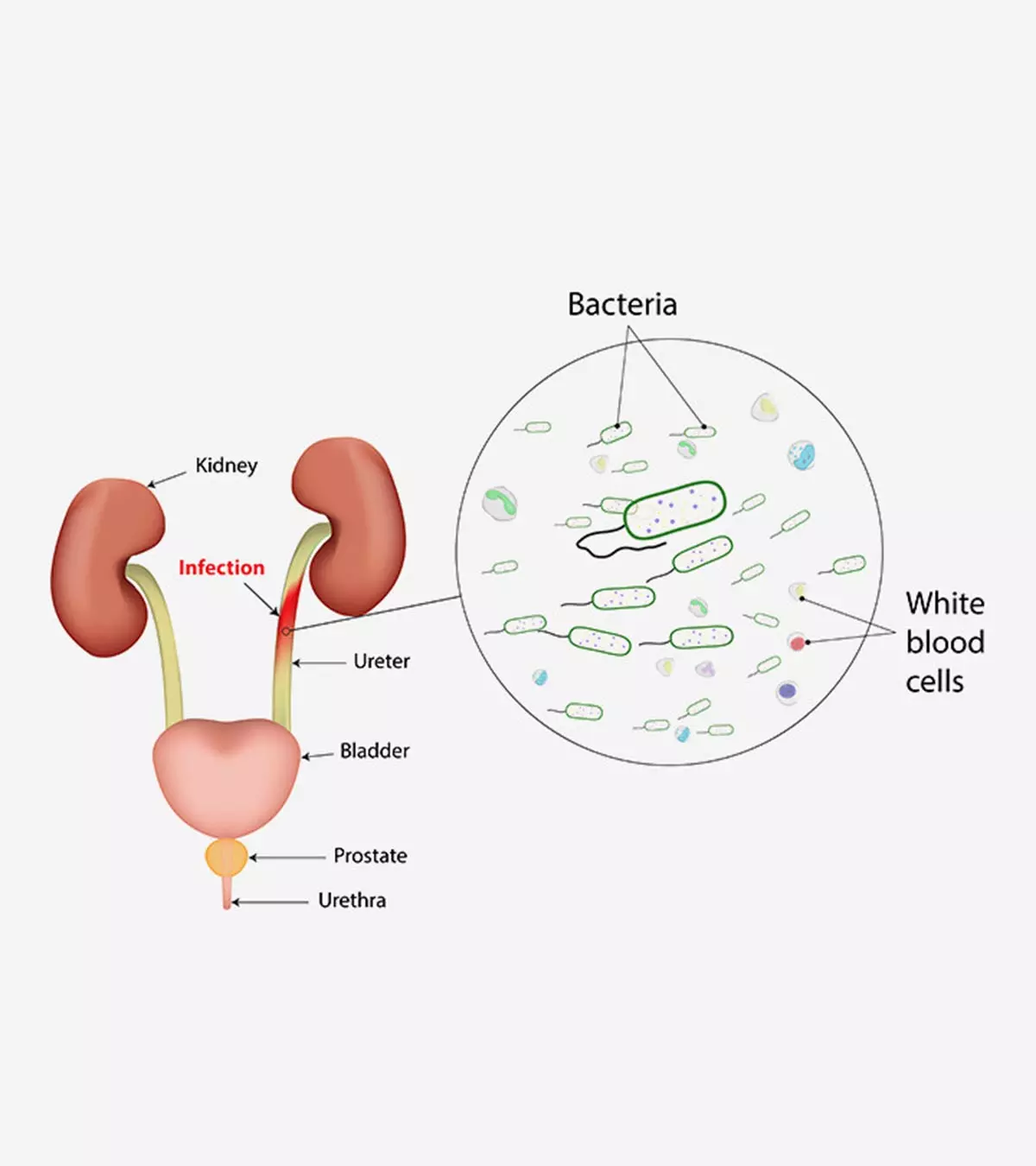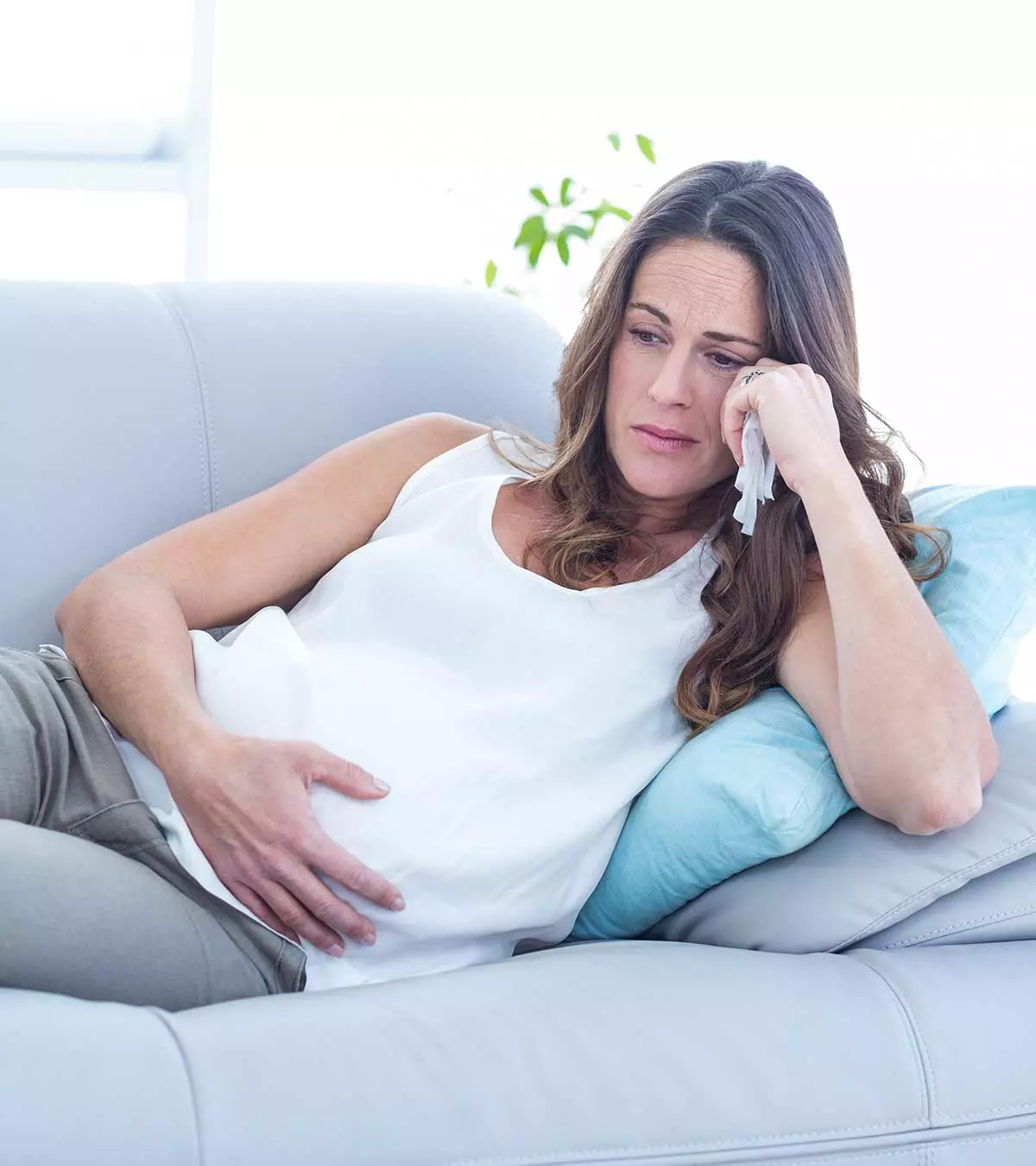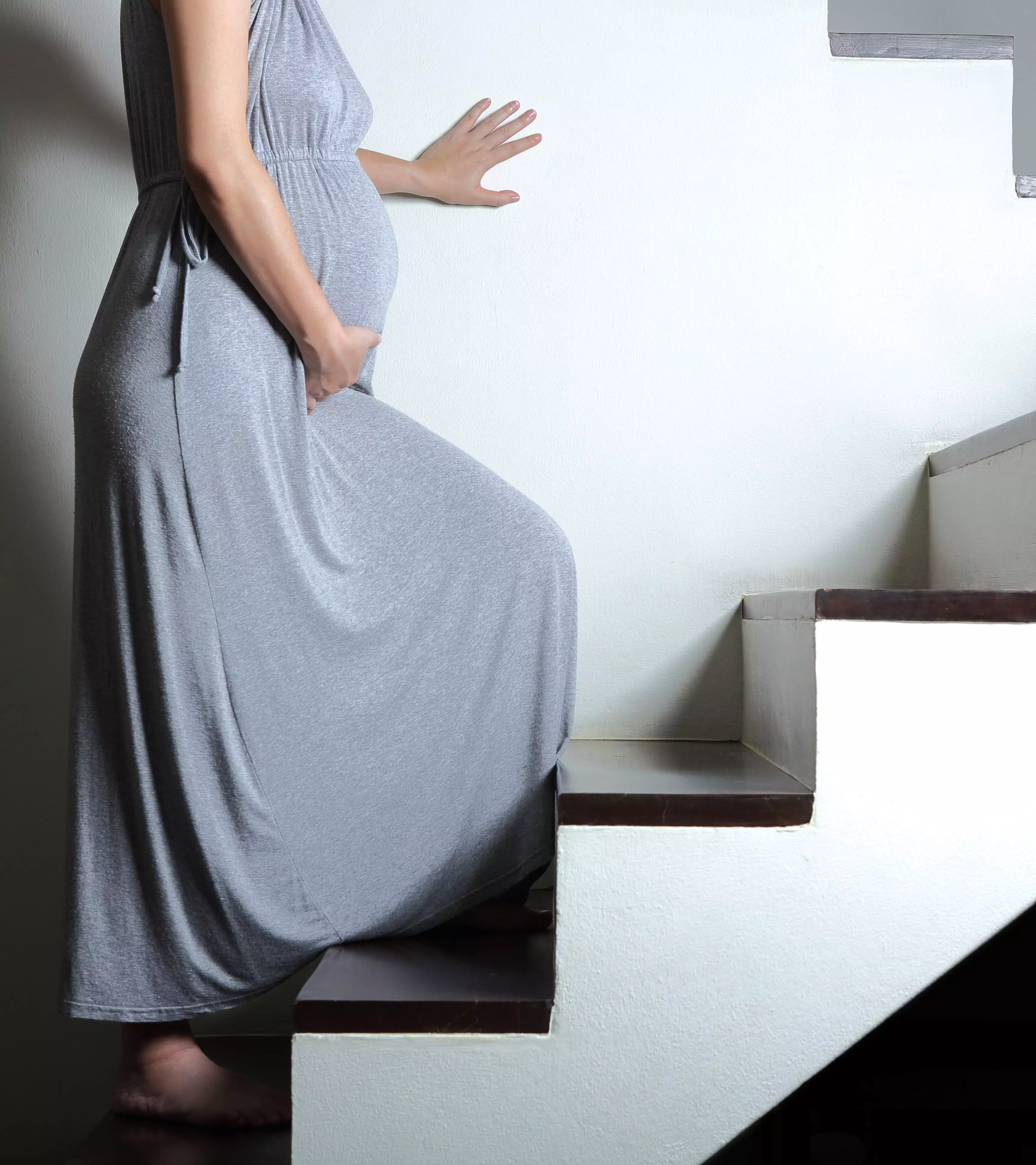
Image: ShutterStock
You may be used to climbing the stairs if you need to reach the first or second floor of a building. However, you may often be advised against climbing stairs during pregnancy, even for a short distance. But is this precaution scientifically relevant or can climbing the stairs be considered a safe form of exercise during pregnancy?

Keep reading this post where we tell you whether it is safe to take the stairs during pregnancy, whether it can be good for your prenatal health or if you should refrain from it, and what precautions to take while climbing them.
Key Pointers
- Climbing stairs is safe in early pregnancy, but as pregnancy progresses and the center of gravity shifts, the risk of falling increases.
- Climbing stairs is an excellent physical activity for pregnant mothers as it keeps their bodies active and lowers their risk of preeclampsia and gestational diabetes.
- When climbing stairs during pregnancy, it’s important to use the handrail, ensure the stairs are well-lit and dry, and go gently.
- Pregnant women should avoid climbing stairs if they are experiencing bleeding, have high or low blood pressure, or have an ailment that makes them unsteady or dizzy.
Is Climbing Stairs Safe During Pregnancy?
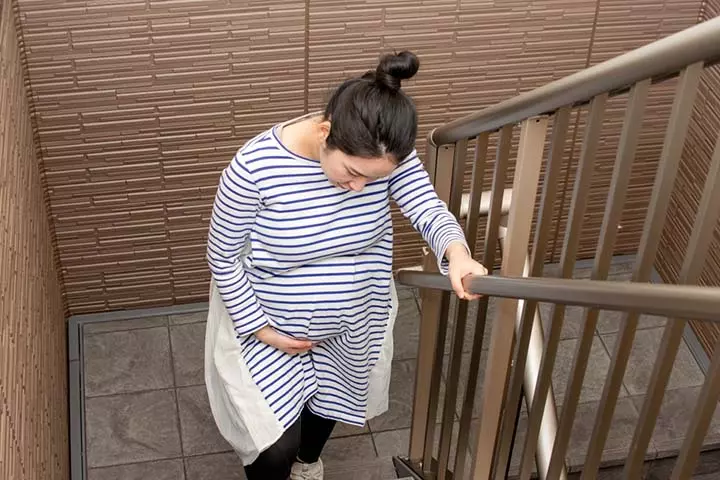
It is safe to climb stairs during early pregnancy when your body is still balanced.
One of the biggest fears in this regard is falling or tripping from the stairs. In the later months of pregnancy, a shift in the center of gravity of your body increases the risk of falls. At this stage, a fall from the stairs, especially on the abdomen, can lead to pregnancy complications (1).
In the 37th week of gestation, your baby drops into your pelvis, making it easier for you to breathe (2). However, the added weight of the full-term baby makes it difficult for you to climb the stairs. If you have to climb, take one step at a time, move slowly by holding the railing for support, and breathe at a normal rate.
How Is Climbing Stairs Good During Pregnancy?

Climbing stairs is a physical activity, which keeps your body active. Research shows that it is as good for fitness as walking during pregnancy or exercising.
- Low risk of preeclampsia: According to a study published in the American Heart Association’s journal called Hypertension, pregnant women who climb stairs have a reduced risk for preeclampsia (a condition wherein women have high blood pressure). This is significant as preeclampsia is estimated to affect 5–7% of all pregnancies, according to the Centers for Disease Control and Prevention. Therefore, incorporating stair climbing into everyday activities may reduce the incidence of preeclampsia as well as improve cardiovascular health.
The study has found that pregnant women, who are inactive, can reduce the risk of preeclampsia by 29% by climbing one to four flights of stairs (3).
- Reduces the chances of gestational diabetes: According to a study by the American Diabetes Association, climbing stairs in early pregnancy reduces the chances of getting gestational diabetes mellitus – one of the common complications in pregnancy (4).
 Quick tip
Quick tipHowever, you should climb the stairs by following some safety measures.
Basic Safety Tips For Climbing Stairs During Pregnancy
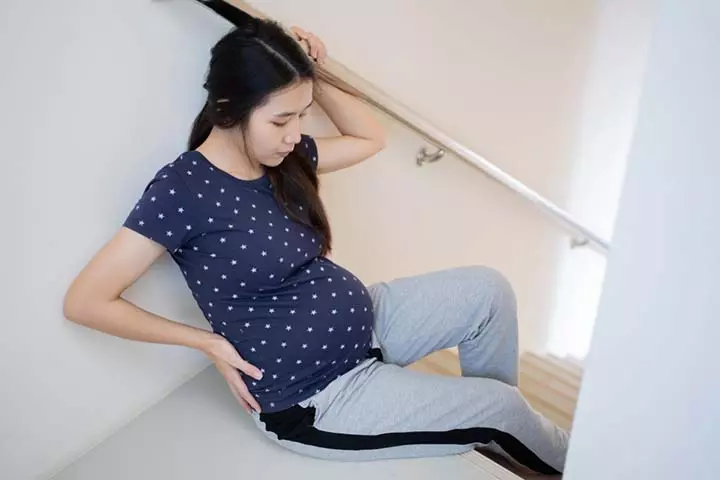
Here are some important safety precautions you should take for your maternal health while taking the stairs:
- While climbing up or coming down the stairs, make use of the handrail. If you are holding anything in one hand, then keep the other free to hold the handrail.
- Ensure that the staircase is well-lit to see the steps clearly. Avoid climbing the staircase in darkness.
- If you have a carpeted staircase, make sure it is tightly fixed to the floor and is not loose.
- Walk slowly and avoid any rush while climbing.
- Take a break while climbing the stairs if you are panting or experiencing low energy levels.
- The stairs should not be wet or greased.
- When you are wearing an overflowing dress, do not take the stairs as you have a high chance of tripping over it.
- Contact your doctor if you slipped or tripped on the stairs.
 Quick tip
Quick tipWhen To Avoid Climbing Stairs In Early Pregnancy?
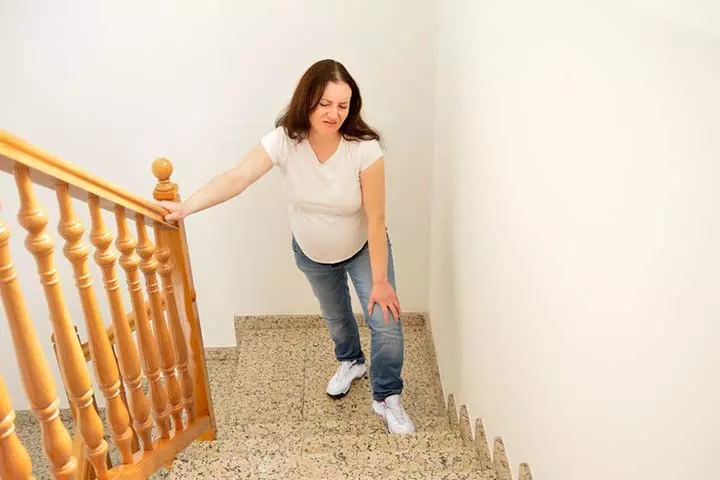
It is safe to climb stairs during the first trimester unless your doctor advises you against it. You must look for a few signs that discourage you from climbing. They include:
- Bleeding
- High/ low blood pressure
- Any illness, such as uncontrolled high blood pressure and fluctuating blood sugar, that can make you feel giddy or lose balance
 Point to consider
Point to considerFrequently Asked Questions
1. Can climbing stairs induce labor?
Climbing stairs does not induce labor spontaneously but may help coax stalled labor (birthing that has already begun). It is believed to do so by dilating the pelvic floor muscles, dropping the baby further below in the pelvis, and causing the stimulation of adequate cervical dilation (5). You may try it only under the supervision of your doctor.
Caroline, a mother from San Francisco, shares her labor and birth experience and mentions how climbing stairs played a role. She writes, “At 40 weeks (of pregnancy), Maria (my midwife) said that the baby was still pretty high and recommended to walk. I started to climb Bernal Hill every day, and it felt really good!”
Sharing about the day she went into labor, she says, “I was a bit surprised to reach 41 weeks… I woke up at 2:30 am and I was having my first ‘real’ contractions. I felt some leaking…” She waited through the night and shares the events that followed the next day, “I called Ti (her birth doula) and asked her to come. When she arrived, she helped me to realize that I was still in early labor and that it could be long… which was so difficult to hear! She suggested to stop timing the contractions and focus so much on them and to go for a walk. I’m glad she suggested that and I wanted to do it, but I was a bit scared to deal with the contractions in the outside world. We went out thinking we’d go one block away from the house. I had a few contractions and was able to manage them… We stopped at the pizzeria because it was smelling good, and I had a few bites of a slice in between two contractions.
“Then we decided to go up the hill… which I have been doing every day for a week. I was hanging from houses’ fences, and my husband when I had contractions. I climbed some stairs at the top of the hill, and we came back.
“When we were almost back home, I knew I needed to go to the bathroom. I had a strong contraction on my outside stairs. And indeed, everything changed as soon as I went to the bathroom. Contractions began to be every 3 minutes and at least 1 minute long, there was a clear pattern change as they were stronger and closer apart (i).”
2. Can I use the stairs instead of the lift while pregnant?
If you are suffering from complications, there are some exercises to avoid during pregnancy. However, if you have an uncomplicated and healthy pregnancy, it is safe to use stairs. You may take short breaks from work to walk or climb stairs instead of using the elevator to keep yourself physically active while pregnant (6).
3. How does climbing stairs affect the fetus during pregnancy?
Climbing stairs during pregnancy is not known to have any adverse effects on fetal health. However, it is essential to take precautions, as an accidental slip and fall may cause complications. Also, repetitive stair climbing can put undue pressure on the pelvic region, which may cause discomfort or exacerbate existing conditions like round ligament pain.
4. Can climbing stairs help in improving blood circulation during pregnancy?
Climbing stairs may help improve blood circulation during pregnancy. When you climb stairs, your heart rate increases, and muscles contract to pass the blood throughout the body. Improved blood circulation can help the mother and baby’s health in several ways (7).
Climbing stairs during pregnancy is a good alternative to walking and can help with weight management. However, you should always be careful and take precautions while using stairs. Ensure you are not rushing or climbing on wet or greased stairs, as it can increase the risk of slipping and hurting your belly. If you had an accidental fall or lost balance on the stairs, contact the doctor immediately to avoid any serious issue. It is usually safe to climb stairs unless your doctor suggests you not take them for any health reasons.
Infographic: Basic Safety Tips For Climbing Stairs During Pregnancy
If you’re pregnant, it’s essential to take extra precautions when climbing or descending stairs. Follow the tips in the infographic below to ensure your safety and comfort. Taking these steps can protect yourself and your baby. You can also share this information with your friends and family, who may find it helpful.
Some thing wrong with infographic shortcode. please verify shortcode syntaxIllustration: Climbing Stairs During Pregnancy: Is It Safe?
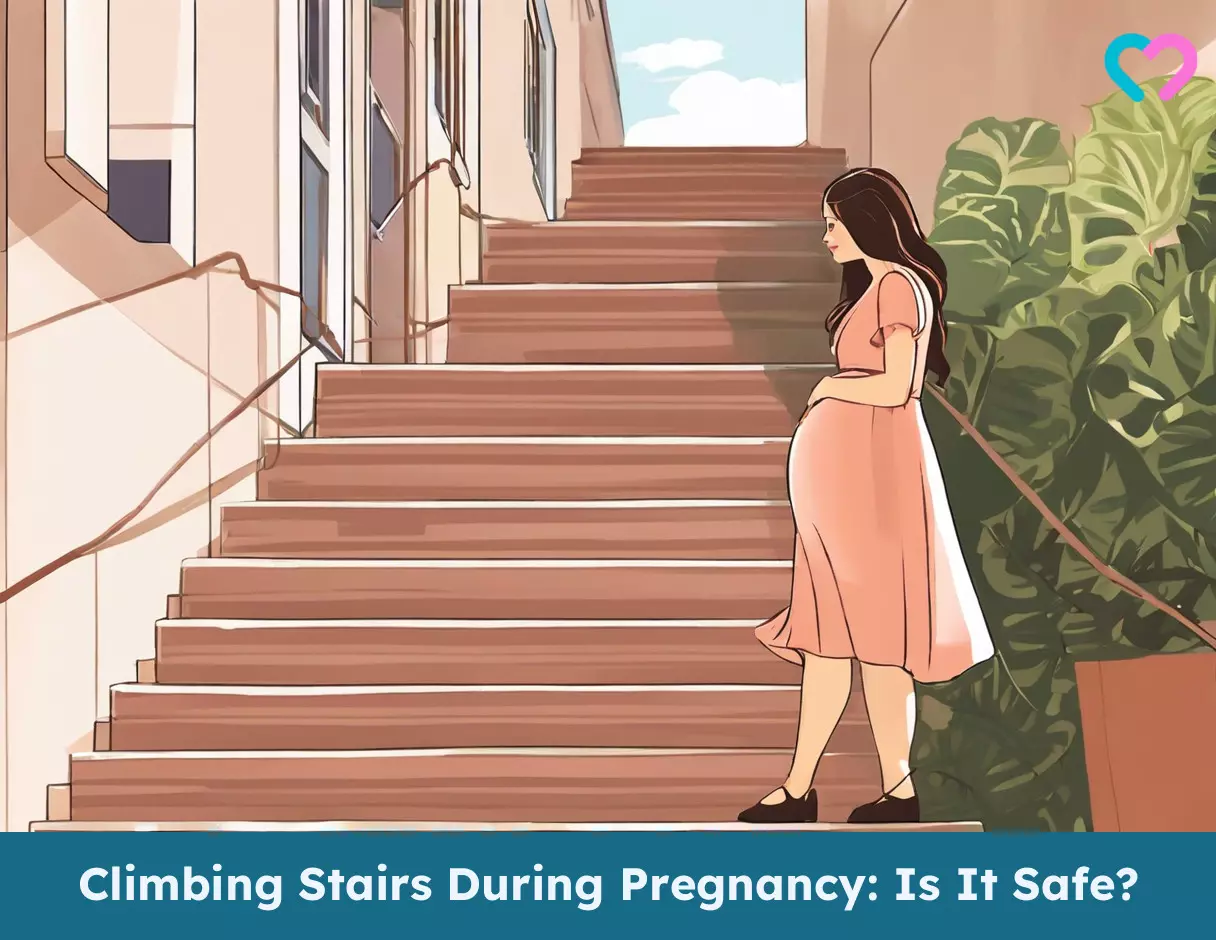
Image: Stable Diffusion/MomJunction Design Team
Personal Experience: Source
MomJunction articles include first-hand experiences to provide you with better insights through real-life narratives. Here are the sources of personal accounts referenced in this article.
i. The birth of Evan;https://wisewomanchildbirth.blogspot.com/2012/06/birth-of-evan-by-caroline-kerherve.html
References
1. MA Schif; Pregnancy outcomes following hospitalisation for a fall in Washington State from 1987 to 2004
2. Pregnancy: Dropping (Lightening); Michigan Medicine: University of Michigan
3. Tanya K. Sorensen, et al.; Recreational Physical Activity During Pregnancy and Risk of Preeclampsia; The American Heart Association
4. Deirdre K. Tobias, et al.; Physical Activity Before and During Pregnancy and Risk of Gestational Diabetes Mellitus
5. 9 Helpful Movements for Labor and Birth; Lamaze International
6. 10 tips for staying active in pregnancy; tommys.org
7. Benefits of Stair Climbing; The Government of The Hong Kong Special Administrative Region
8. Exercise and Pregnancy; American Pregnancy Association
Community Experiences
Join the conversation and become a part of our nurturing community! Share your stories, experiences, and insights to connect with fellow parents.
Read full bio of Dr. Sangeeta Agrawal
Read full bio of shreeja pillai
Read full bio of Rebecca Malachi
Read full bio of Aneesha Amonz






